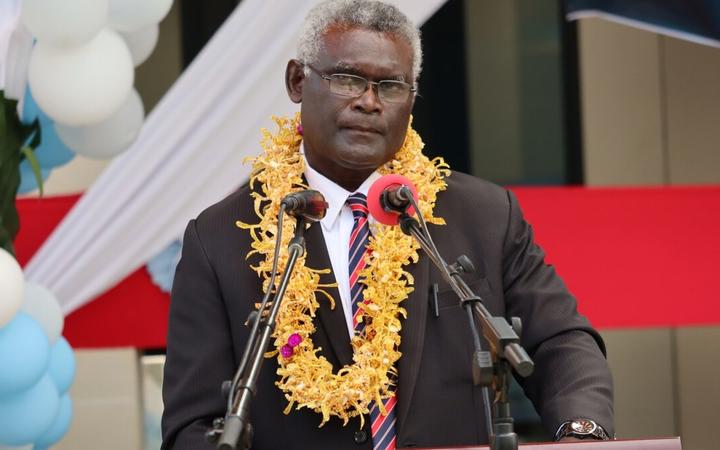New Zealand and Australia have expressed concern over a new security deal between China and Solomon Islands. The Detail takes a closer look at whether that concern is warranted, or whether it's geopolitical business as usual.
When a draft security agreement between China and Solomon Islands was leaked late last month, New Zealand's top foreign affairs brass were quick to spring into action.

The agreement would allow China to send police and military personnel to the Solomons "to assist in maintaining social order". Chinese warships could also use the Islands as a stopover point, or to replenish supplies, despite no port existing in the Solomons which could accommodate Chinese ships.
New Zealand's Defence Minister Peeni Henare said the agreement took New Zealand intelligence by surprise. Foreign Minister Nanaia Mahuta said it would be "very concerning" if the agreement was genuine (it's since been confirmed as authentic by Solomon Islands Prime Minister Manasi Sogovare). Prime Minister Jacinda Ardern described the prospective deal as "gravely concerning".
But why is New Zealand's rhetoric so strong over what is essentially a sovereign nation exercising its own independent foreign policy?
Victoria University of Wellington senior lecturer in political science and international relations Iati Iati says it's geopolitical business as usual.
"I think one of the problems from New Zealand and Australia's end is, they've always viewed this region through a strategic lens.
READ MORE
- Solomon Islands Prime Minister ups ante in criticism of Australia while praising China during tirade in parliament
- Solomon Islands prime minister lashes Australia over AUKUS security pact
- Foreign Affairs Minister says Pacific should look after itself, not look to China for security
- US warns against allowing Chinese military base in Solomon Islands
"Whenever you put 'China', 'military' and 'the Pacific' into a sentence, you get everybody freaking out. But I think they probably want to just calm down a bit, see how this plays out. It's nothing to be too worried about right now, it's just normal relations."
China has invested heavily in Pacific countries over the past decade, he says, often without the strings attached to aid that New Zealand and Australia insist upon.
Since they gained independence, Iati says Pacific countries are prioritising development and asserting their own autonomy on the world stage. Cutting their own deals with big powers like China is part of that process.
And this willingness to open their ears to other countries may be symptomatic of an overly paternalistic relationship with New Zealand and Australia, Iati says, which can sometimes veer into the patronising.
When asked whether he might be over-intellectualising and ignoring more unsavoury aspects of the Chinese Communist Party's rule, like repression of freedom of speech and China's treatment of ethnic minorities, Iati says this is a fair point, but is perhaps blinkered to the acute needs of Pacific nations.
Should NZ be worried about the China-Solomons security deal? |
"These countries have a whole host of issues they have to deal with, from climate change to governance to accountability to poverty. I think it's a bit unfair to heap all these other issues on them to consider in establishing their diplomatic relations when even countries like Australia and New Zealand are happy to do business with a lot of these big powers that may do things that we don't agree with in other parts of the world."
Iati says New Zealand and Australia have, for most of the 20th century, considered the Pacific to be part of their neighbourhood: Australia is historically the biggest provider of aid to Pacific nations, and New Zealand maintains strong diplomatic and cultural ties with many of the countries in the Pacific.
But as the world becomes more globalised and other actors on the world stage look to get involved, Iati says the Antipodean countries fear their influence could be on the wane.


